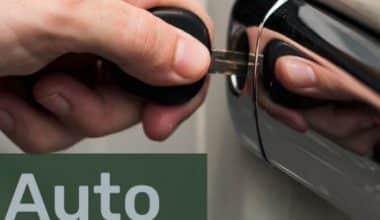Several companies provide used car repairs insurance coverage which assists in covering unforeseen repairs that could arise throughout the ownership of your vehicle. Optional auto repair insurance, also called “car repair insurance,” may be available if you want protection in the event of a breakdown. Your car insurance policy will not pay to fix a mechanical problem, such as a blown gasket or a malfunctioning electrical system, in a brand-new or used vehicle. That is because, depending on the coverage options you purchase, a typical car insurance policy only provides coverage for auto accidents and certain other issues (like car fires and theft). .
Car Repair Insurance
If your vehicle develops mechanical or electrical issues, this will cover the cost of repairs. Extra protection against the costs of upkeep and repairs, car repair insurance is something you can invest in. A mechanical or electrical failure will not be a problem if you have auto repair insurance. This protection, which is also called “auto repair insurance” and car repair insurance functions like a standard car warranty. This can cover wear and tear issues as well as other common issues like an air conditioner or engine failure.
Full coverage auto insurance, which typically includes comprehensive and collision coverage, pays for repairs to your vehicle in the event of an accident. But if your car breaks down for reasons unrelated to an accident, your regular insurance probably will not pay for the repairs. That is why it is important to have car repair insurance.
How Does Car Repair Insurance Work?
You can claim your auto repair insurance if you experience any issues with your vehicle, such as a mechanical malfunction. A claims adjuster will look into the situation and tell you if it qualifies for reimbursement. For instance, if a defect causes your car’s electrical system to malfunction, you should be compensated. Most auto insurance policies will not pay out if you damage your vehicle by severing an electrical wire while installing a new radio.
If the problem with your car is covered by your auto repair insurance, you can take it in for service. Your auto repair insurance policy may have a blacklist of repair facilities you can not use. It is important to check with your insurance company to see if the costs of repairs will be covered before scheduling service.
Limitations of Car Repair Insurance
The decision to invest in auto repair insurance is not without risk. Obtaining this sort of insurance can be difficult as most organizations place stringent limits on their coverage. The insurance company has the right to deny coverage or delay payment by several weeks or months. While most auto repair insurance policies are flexible, they may not meet all of your requirements. Signing up for auto repair insurance does not guarantee you will not end up needing work done on an uninsured component.
Is Your Car Eligible for Car Repair Insurance?
In most cases, repair insurance is only offered by insurance companies to drivers whose vehicles are a certain age or have a certain mileage. You may only be able to get a policy if you’re buying a relatively new car without a lot of miles on it. The insurer may also refuse to renew your policy once your vehicle reaches a certain age or mileage.
What Does Car Repair Insurance Cover?
Coverage for car repair insurance varies by insurance provider, but typically includes the following:
- Air conditioning
- Cooling systems
- Electrical systems (including the car’s computer)
- Engine
- Exhaust
- Fuel systems
- Steering components
- Transmission
What Doesn’t Car Repair Insurance Cover?
Some common things that car insurance companies will not pay for if your vehicle experiences a mechanical failure are:
- Car collision damage
- Regular servicing consists of things like oil changes, adjustments to the suspension, and the rotation and balancing of tires.
- Problems stemming from neglectful upkeep, such as skipping oil changes or putting in the wrong fuel,
- Everyday wear and tear, like tires and brake pads that are worn down
- Items that are not mechanical, like car trim and molding
- Issues or parts that your car warranty covers
- Items or components subject to a recall
- Replacement or repaired components that are part of a manufacturer’s warranty program
- Damage that existed before you purchased the policy
- Corrosion and rust
Car Repair Insurance Company
#1. Endurance (VSC)
The B+ rating from the Better Business Bureau shows that Endurance is a trusted direct provider, not a broker like most companies. Endurance is not an insurance company. Instead, the company offers four tiers of protection to choose from depending on your requirements and budget. Your contract payment schedule has the flexibility to span up to three years. Monthly costs can be lower than those of some rivals, and customers have more payment options to choose from.
Coverage for engine and transmission repairs is standard across all Endurance plans, with additional coverage for other parts of the vehicle available in higher tiers. Tire replacement, roadside assistance, and other benefits are all part of the Endurance Elite Membership that comes free with the purchase of a new plan. Coverage is provided for up to 160,000 miles, which is less than some rivals but more than some large insurance companies.
#2. Carchex
Carchex is an auto service contract broker that helps drivers find the best coverage for their needs. The quality of the brokerage service is dependent on the quality of the companies it partners with. Given their A+ rating from the Better Business Bureau, Carchex appears to have made a wise choice. Carchex aims to create lasting value for its customers by giving them more options, such as five different contract tiers and coverage for up to ten years. Several excellent service providers are available at each contract tier. Additionally, Carchex is a good choice for people who own older cars because they offer different lengths of coverage, and the maximum mileage that is covered is 250,000 miles.
This company offers contracts that last up to 10 years or 250,000 miles, whichever comes first. The CARCHEX Silver plan protects vehicles with high mileage by covering its major systems.
Among the various CARCHEX plan tiers are:
- Titanium: Almost everything on a car is protected, but there is a short list of things that aren’t.
- Platinum Plan: The Platinum plan includes everything the Gold plan does, plus coverage for the vehicle’s suspension, electronic controls, and fuel delivery system.
- Gold Plan: In addition to the perks of the Silver plan, the Gold plan provides comprehensive protection for the vehicle’s steering, electrical, and air conditioning systems.
- Silver Plan: Coverage for the engine and some electrical, AC, and steering parts are included in the silver plan.
- Bronze: Provides the barest minimum of protection for the powertrain.
#3. Mercury Insurance
There are four different packages of Mercury Mechanical Protection available, each covering repairs for up to seven years or 100,000 miles. In the event of an accident or breakdown that prevents you from continuing your journey, services like roadside assistance, rental car assistance, tire protection from road hazards, and trip interruption coverage can come in very handy.
If you buy the highest level of coverage from Mercury for your car insurance and you end up filing a claim, Mercury will pay up to $500 of your deductible. In contrast to typical vehicle protection plans, Mercury allows you to go to the repair shop of your choice and handles all claims in-house.
Mercury Car Repairs Insurance Coverage
When it comes to MBI coverage, Mercury Insurance has a product called Mercury Mechanical Protection. Similar to an extended warranty, this provides varying degrees of protection. Mercury’s platinum plan covers all claims aside from the most extreme mechanical and electrical ones.mechanical breakdown
#4. AAA Car Repairs Insurance Coverage
Whether you need emergency road service, car insurance, or vacation planning, you can count on AAA to be there for you. There are four tiers of car repairs coverage available from the 117-year-old company, with some plans covering costly repairs for as long as seven years or 230,000 miles. Many of the protections your car enjoyed under the original manufacturer’s warranty are replicated in AAA’s top-tier Exclusionary package.
There are three more options for car repair insurance, each of which promises lower premiums and coverage for a broader range of potential breakdowns. Repairs to the engine and transmission are included no matter the circumstance.
You have the option of making interest-free payments over two years on your AAA contract. The company requires a $100 deductible, but if you go to one of their preferred auto service providers, you can get that down to $50 or even zero.
#5. GEICO Car Repairs Insurance Coverage
When it comes to mechanical failure coverage, GEICO is a major player in the industry. GEICO’s car repairsprotection is only available for vehicles that are less than 15 months old and have less than 15,000 miles on the odometer. The policy’s validity period is seven years or 100,000 miles, whichever comes first. Covered damage:
- Cooling systems
- Suspension
- Steering
- Transmission
- Drive axle engine
Things that GEICO does not cover include:
- Regular maintenance includes things like tune-ups, alignment, and balancing of the suspension and wheels, and the replacement of worn brake pads, spark plugs, air filters, and tires.
- Any harm brought on wilfully or by improper use
Your vehicle’s value will be used to calculate the MBI premium. This is why GEICO does not list the price of their standard car repairs coverage. Even though third parties say GEICO’s insurance is pricey, the company insists that its MBI only costs “pennies per day.”
Car Repair Insurance Cost
Insurance against mechanical failure (MBI) functions similarly to auto repair insurance. Depending on the policy and insurance provider, the annual premium for this protection can range from $50 to $100. If you already have a full-coverage auto insurance policy, adding maintenance coverage typically costs around $100 annually. Also, Insurance premiums for vehicle maintenance do not take deductibles into account. Your deductible is the out-of-pocket expense you must make before your auto insurance will begin to pay for damages.
Deductibles for auto repair insurance typically cost somewhere between $100 and $300. The amount of your deductible will tell you when to file a claim and when not to. In general, you should not file a claim unless the repairs will cost twice your deductible.
Depending on the vehicle’s age and mileage, the cost of collision repair insurance can range from several hundred dollars to several thousand dollars annually. It depends on several factors, including how often you drive, how old your car is, how much it costs to replace parts, and how well the repairs were done. However, the cost of auto repair insurance rises as vehicles get older, and more breakdowns are to be expected. Since the typical deductible ranges from $100 to $300, most policies will not cover small fixes.
Used Car Repair Insurance
Used car buyers should consider purchasing car repairs insurance as a safety net in case the car they buy turns out to be unreliable and requires expensive maintenance. You should read your policy carefully to learn about any limitations on coverage that may apply to you. MBI is not responsible for covering expenses incurred as a result of a collision or other accident. Liability, collision, and comprehensive insurance policies must cover the cost of repairs after an accident. Used vehicle owners may have trouble obtaining car repairs insurance due to the varying eligibility requirements of different providers.
Cost of Repair Insurance for Used Cars
Car repair insurance coverage for used cars can range in price from cheap to very expensive, just like any other type of auto insurance. Most MBI policies are relatively inexpensive. The typical annual premium is only $75, reports The Wall Street Journal. There may be more affordable service providers out there. Customers of Geico, for instance, say they pay as little as $30 annually for coverage, which works out to an extra $2.50 per month.
Get in touch with various service providers to get quotes on car repairs insurance for your used vehicle. There are not many major insurers that provide coverage for mechanical breakdowns in pre-owned vehicles. Large insurance providers like AAA, Allstate, Geico, Liberty Mutual, Mercury Insurance, USAA, and 21st Century all offer MBI insurance plans.
Geico’s full coverage MBI insurance is only available for vehicles that are less than 15 months old and have less than 15,000 miles on the odometer. A USAA MBI policy can cover a vehicle for a maximum of 10 years and 115,000 miles.
If your current insurance company does not offer car repairs insurance coverage, it may not be worthwhile to switch companies just to get this coverage. You should look into getting an extended auto warranty instead, as it will provide you with more protection and options.
When shopping for a used car, getting a car repair insurance can be a low-cost way to secure your peace of mind and help you manage the ongoing expenses associated with car ownership. Because MBI policies are insurance, they are all subject to the state’s insurance laws, which further protects policyholders.
How Much Does CarShield Cost per Month?
The monthly cost of a CarShield plan is usually between $99 and $130. The cost to insure your car will vary based on factors such as its make, model, age, and mileage as well as the coverage and deductible (typically $100 for each plan).
Does CarShield Pay for Repairs?
As long as your CarShield vehicle service contract is in good standing, you will indeed be reimbursed for eligible repairs. CarShield provides a variety of auto repair insurance plans that are, according to the company, both adaptable and useful in protecting policyholders.
What Does CarShield Not Cover?
In normal wear and tear situations, things like brake pads, air filters, and windshield wiper blades can get damaged. Damage from not doing regular maintenance. There are problems with natural disasters, car accidents, theft, and vandalism. The malfunction of modified components.
Does CarShield Cover Accidents?
Most policies limit coverage for your car to accidents and damage caused by things like fires, theft, and vandalism. CarShield service contracts protect your vehicle’s engine, transmission, and other moving parts. CarShield does not cover auto accidents.
What is the Mileage Limit for CarShield?
CarShield offers coverage for vehicles that can have up to 300,000 miles on them, which is significantly more than what the majority of companies are willing to cover.
Does CarShield require a Deductible?
Yes, the standard deductible for the CarShield extended warranty plans is $100. This is true in the majority of cases. The Platinum and Diamond level plans offered by this company both have no deductibles to worry about. The vehicle service plans offered by CarShield have deductibles ranging from zero dollars to one hundred dollars. However, the platinum and diamond level plans are the only ones that offer a zero-dollar deductible option.
What Does the CarShield Gold Plan Cover?
The Gold plan covers the vast majority of the Diamond plan’s major and minor vehicle components. Brakes, electrics, wiring harnesses, steering, suspension, emissions, and the instrument cluster are not included in the Gold plan’s coverage. This plan also covers emergency roadside assistance.
Does CarShield pay 100%?
CarShield service contract holders do not have to worry about paying their mechanic or dealer for covered repairs because the administrator will pay them directly (less any applicable deductibles). After the deductible is met, CarShield will pay for all costs associated with repairing your covered vehicle.
What Is the Waiting Period for CarShield?
After purchasing CarShield, you must wait 20 days or 500 miles before coverage begins. This clause is in place to safeguard CarShield against paying for repairs that the customer was already aware of before purchasing protection. CarShield takes vehicle history into account during the signing process.
Does CarShield Include Towing?
CarShield’s extended warranties include not only coverage for repairs, but also additional benefits like 24-hour roadside assistance: Tows, jump starts, flat tire repairs, locksmith services, and gas delivery cost $500 together and $125 for each breakdown.
Conclusion
If your car requires an expensive repair between the time your manufacturer’s warranty expires (after three or five years, for example), purchasing a car repair policy may be in your best interest. Be sure to read your service provider’s MBI policy in its entirety before purchasing the optional coverage, though. There may be clauses in contracts that prevent an MBI policy from being fully useful in the event of a breakdown.
- Extended Car Warranty Insurance: Best Plans for 2023
- WHAT IS LOSS OF USE COVERAGE IN HOME INSURANCE?
- American Home Shield Insurance: Review 2023
- TOP BEST INSURANCE FOR NEW DRIVERS 2023
- THE TOP BEST HOME WARRANTY PROVIDERS 2023






